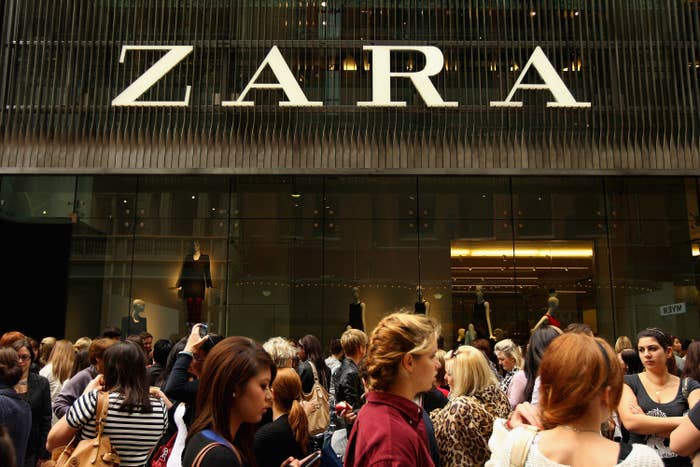
We may all be at home, but that hasn’t stopped our reporters from breaking exclusive stories like this one. To help keep this news free, become a member and sign up for our newsletter, Outbreak Today.
NEW DELHI — A woman immaculately dressed for quarantine reads on a plush sofa in her black crop top and anti-fit denim pants. Another, dressed in a flouncy floor-length peach dress, dances in her kitchen with joyous abandon. A third socially distances on a boat, her white poplin shirt dress a contrast to the lush green surroundings.
Meanwhile, in crowded factories located in chaotic, crime-filled industrial hubs, the workers making these clothes find themselves abandoned by Zara, the global retail brand that’s making quarantine look so glamorous.
When more than one-third of the planet went under coronavirus-related lockdowns, fashion changed. The globe-trotting, stylish woman from Zara’s campaigns moved indoors — or at least, that’s where you’ll see her in the slickly produced videos that the global fashion brand uploads to Twitter. It’s possible that no one will don a Versace cape anytime soon, but consumers are ordering clothes online to reflect their new lives: clothes to wear on work Zoom calls, athleisure for exercising at home, sweats and pajamas for lounging around, and clothes that simply make us feel good. The world might be full of uncertainty, but being able to choose the fit, color, and fabric of the shirt we pair with those comfy pajamas still offers the possibility of feeling in control.
The cost of this retail therapy, the longing for comfort and normalcy under lockdown, is being borne by workers thousands of miles away, faces you’d never see in a summer fashion campaign, even when the videos include token models of color. These workers cannot work from home and, in some cases, they are working in factories in close proximity to each other where there is no concern for protecting them from the coronavirus. While brands like Zara, which has stores in 96 countries, ramp up work at logistics centers, workers assembling clothes, swimwear, accessories, and shoes are being sacrificed to meet the demand.
Issues with fast fashion far precede the emergence of COVID-19, the disease caused by the coronavirus, but its rapid spread has deepened the incredible inequity between garment workers who work at one end of the supply chain and wealthy individuals like Zara’s Spanish billionaire owner Amancio Ortega, the world’s sixth-richest man, who are rebranding themselves as benevolent saviors.
At the height of the pandemic in Spain this year, Zara’s parent company, Inditex, closed more than 3,000 stores. Ortega pivoted his fashion empire to making hospital gowns and masks, and according to Forbes, flew in medical supplies worth millions from China. Ortega also made sure that Zara’s Spanish employees received their full salaries during the crisis — all of which won him plenty of great press and support in Spain. On March 28, ambulance crews gathered outside his home to wish him a happy birthday. But Ortega’s generosity and concern for Zara’s workers stopped at the borders of Spain.
Las ambulancias de La Coruña delante de la casa de Amancio Ortega para expresar el agradecimiento de toda la sociedad y felicitarle por su cumpleaños. Felicidades Amancio, Marca España 🇪🇦
While Ortega showed generosity and concern for workers in Spain, BuzzFeed News has spoken to employees from two factories that form part of Zara’s supply chain in Myanmar. Inditex does not publicly disclose the list of factories it sources clothing from, but here workers put in 11-hour shifts, six days a week, for as little as $3.50–$4.74 per day. As people sang “Happy Birthday” to Ortega from their balconies in Spain, more than 500 workers at the two factories were laid off when they asked to be supplied with durable masks and for social distancing to be introduced to protect them from the coronavirus. One of the factories, Myan Mode, fired every single member of a workers’ union, along with a woman who had complained of being sexually harassed at the factory last year.
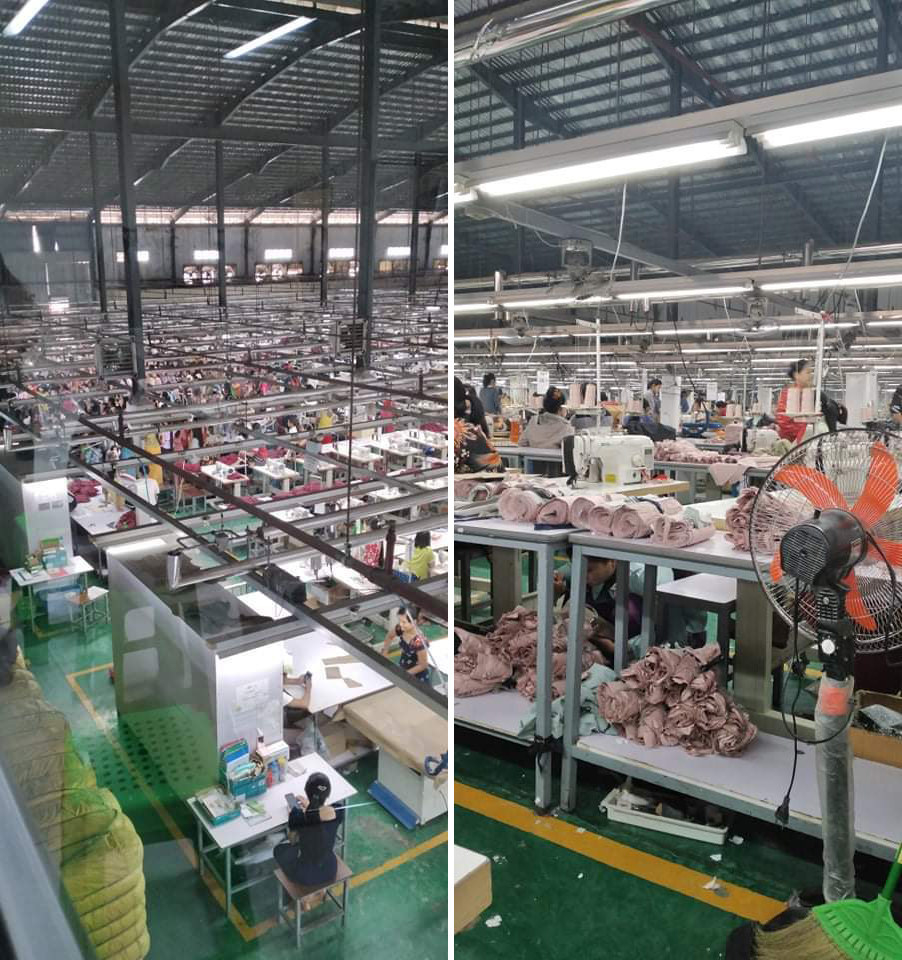
Inditex said it rejects the assertions made by BuzzFeed News. “Inditex has worked tirelessly over many years to ensure the standards set out in its supplier code of conduct are followed, including through its global partnership with the IndustriALL Global Union – the first agreement of its kind in the industry – and its membership of the ACT platform on living wages,” a spokesperson said in a statement issued after this article was published. “As soon as the Coronavirus pandemic hit, we committed to pay our suppliers in full for all orders produced or currently in production. Freedom of association is a core principle of our supplier Code of Conduct which is why as soon as the Myanmode dispute arose we insisted on a mediation process.”
Anxiety about being laid off or having your salary slashed because of the coronavirus crisis has led to thinkpieces, graffiti, and “eat the rich” memes. Britney Spears might be a communist now, and teenagers on TikTok are calling Karl Marx “daddy.” Jeff Bezos — memed mercilessly for losing a minuscule portion of his money — has in fact now added $25 billion, more than the GDP of Honduras, to his total wealth since the coronavirus crisis began. Billionaires in the US have seen their net worth increase by tens of millions of dollars in the last three months.
Many want the ultra-rich to do more, which might be why Rihanna, who has donated millions of dollars to coronavirus relief efforts, has been described as a “one-woman COVID-19 foe.” But the pandemic and its economic repercussions have laid bare the hypocrisy of the super-wealthy who do just enough to make sure they get good press, while treating workers who labor for their brands as disposable.
“We could all die, and for what? Making already rich brands super rich,” one worker said on the phone from Myanmar’s capital, Yangon, speaking on the condition of anonymity. “The working class is being sacrificed so they can wear good clothes.”
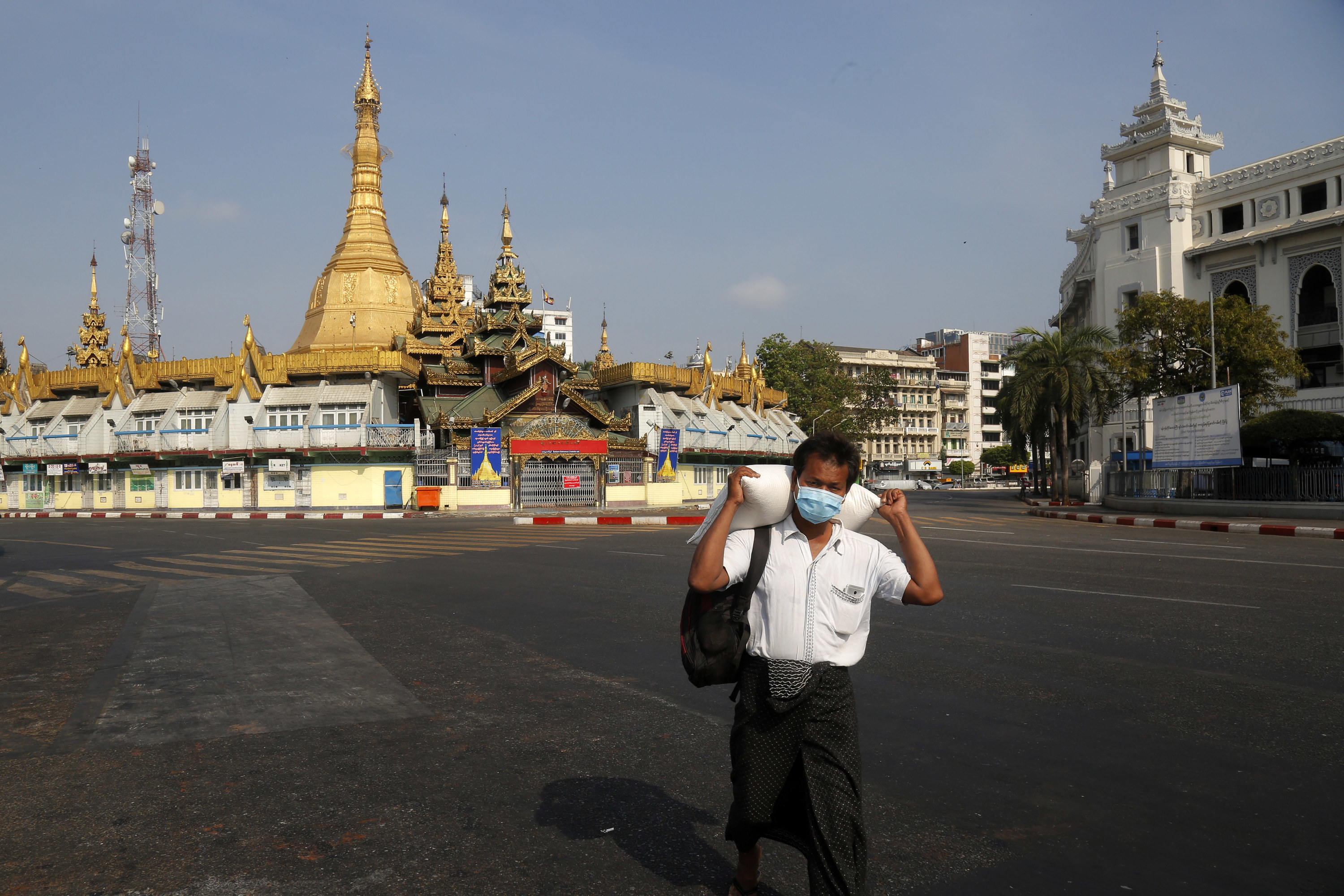
The coronavirus has so far not spread extensively in Myanmar, despite the country sharing a nearly 1,400-mile border with China, and the fact that an estimated 10,000 migrant workers were crossing the border on a daily basis until late January. As of May 7, the country has officially recorded only 176 cases and six deaths.
The country’s first positive case of the coronavirus was recorded on March 23 — a Myanmar citizen living in the United States who had recently returned for a wedding. Until then, Myanmar’s government was still patting itself on the back because there were “no cases of coronavirus in the country” — something the health minister said the people owed to their diet and lifestyle. There was still no mention of social distancing. But like several parts of Southeast Asia, it is difficult to give a true picture because there is insufficient testing — as of May 1, the government had administered 8,300 tests. Experts fear that if the number of coronavirus cases increased dramatically, the country’s public healthcare system would collapse. The World Bank has estimated that Myanmar has only 249 ventilators for a population of almost 55 million.
Not a whole lot had changed in the working practices at Myan Mode, the Zara factory which lies in the heart of the industrial district of Hlaing Tharyar, in Myanmar’s capital, Yangon. Since the factory, whose owners are based in South Korea, opened in 2016, half of all orders have been from Zara.
Hlaing Tharyar is a crowded hub of garment factories and light manufacturers, home to gang violence, police violence, and union clashes. Most of Myan Mode’s workers are young women from rural villages — Myanmar’s garment workforce is over 90% women. At the insistence of the workers’ union, factory bosses had added a basin for workers to wash their hands, while temperature checks took place as workers entered the factory. Employees had been provided with cloth masks in February but they were not durable, and the factory did not supply any other masks.
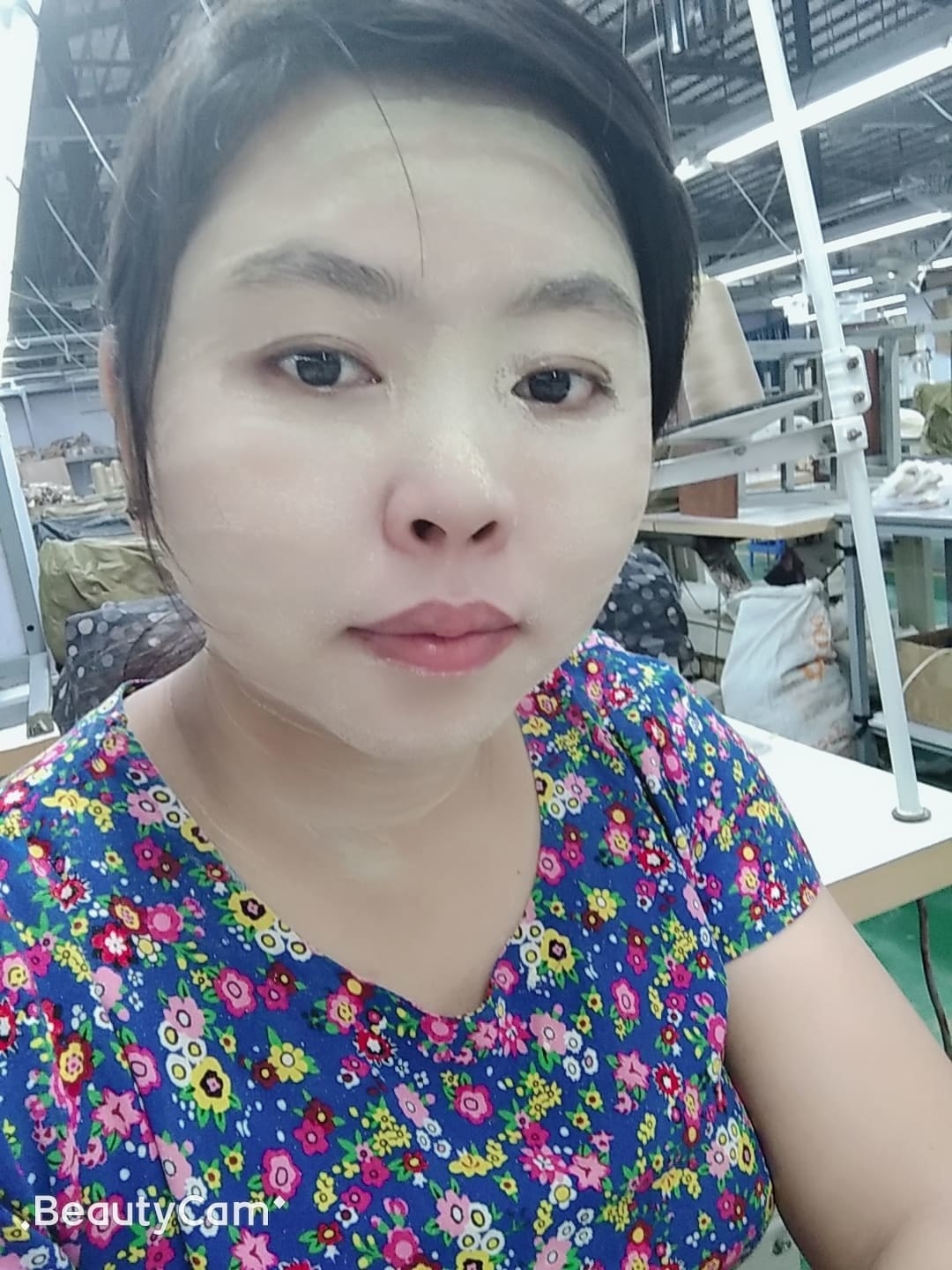
Then suddenly, in the last week of March, everything changed. “The husbands of two women who worked at the factory returned from Thailand and were showing symptoms of COVID-19,” Ohmar Myint, a 34-year-old sewing machine operator at Myan Mode, told BuzzFeed News. “The women and their husbands lived in the dormitory, so everyone found out.”
On March 28, the union decided to speak to the factory’s owners again. “We wanted masks to be made mandatory, an end to mandatory overtime while the crisis was on, and we wanted them to send home the two women whose husbands had COVID-like symptoms,” a veteran union leader named Mau Maung, who was part of the negotiating committee, said. “It was a half-day, Saturday, so the management told us it would come back with a decision soon.” A few hours later, an official came to the room where the workers were gathered and read out a list of 571 names. Everyone on the list, including Myint, Maung, and 520 union members, was fired on the spot, representing about half of Myan Mode’s workforce.
“We were given no notice at all,” Maung said.
Nearly half a million people in Myanmar work in garment factories, living cheek by jowl in dormitories that factories rent to them for half of their salaries. The country’s minimum wage is one of the lowest in Asia, and following a wave of strikes last year, approximately 50,000 garment workers have joined or formed unions. These unions are a lifeline for people who are treated by big brands as convenient, but ultimately disposable, cheap labor. Myan Mode’s union was able to negotiate small victories for the workers, like permission to be up to 15 minutes late for work, and more reasonable working hours than other factories demanded — 44 hours a week, with up to 14 hours of overtime.
Dig into Zara’s history, and you will find its owner Ortega’s origin story recounted in breathless detail. It always begins with poverty, the seed for his philanthropic nature was planted when as a 12-year-old boy he saw his mother being denied food on credit at a local shop in La Coruña.
That kind of poverty is familiar for Myint, who was one of the 571 employees laid off at Myan Mode.
When she spoke to BuzzFeed News on the phone from Yangon, she sounded defiant and sad in turns — the factory had fired every single union member, and a woman who had complained that a senior colleague at the factory had made sexual advances toward her.
Myint said sexual harassment was rampant at garment worker factories in Myanmar, and she admired the way the union stood by the complainant, their solidarity ultimately leading to the man’s resignation from Myan Mode. This, she said, was why she joined the union. BuzzFeed News has been unable to contact the complainant, who union members say has left Yangon and returned to her native village.
“Workers cannot oppress workers, but that’s what happens at the factories,” Myint said. “The factory owners have absolute power — we cannot talk back to them no matter how much they exploit us, or demand better pay, or even ask for leave. If we take even one day off, we lose money. On days we finish our work early, we cannot sign out of the factory, we’re simply given another task, and then another, and another...the work never stops.”
Being in the union gave Myint more bargaining power, she was part of a collective of over 500 people, most of whom were women. But at the end of each day, Myint said, she still felt as though she was a machine whose batteries had died. Her entire body ached from hunching over the zippers and lining she sewed into skirts, jackets, shirts, and hoodies for Zara and its rival Spanish brand, Mango. Once her shift ended, there was still housework to be done, groceries to be carried home, food to be cooked for her family. She had five hours to herself in the entire day, and those were meant for sleep.
Myint said she first learned about the novel coronavirus in January, while browsing Facebook.
“[I was reading about] how contagious it is, and that’s scary for me, because we work so close to each other all day, if one of us fell sick, everyone would fall sick,” she said.
By February, Myint and the other union members had heard that the supply of raw materials from China, things like zippers, fabric, buttons, rivets, and velcro, had stopped coming to Myan Mode. That’s when Myint and the union decided to talk to their employers at the factory.
“We told them, ‘If you have plans to close the factory or fire workers because of coronavirus, let the union know first so we can help people look for other work,’” she said. “The owners agreed, but said there was no plan to close the factory yet.” Myan Mode confirmed the details of this conversation.

The reputation that Ortega, Inditex’s billionaire founder, enjoys as a small-town hero in Spain is bolstered by stories about his legendary humility. Stories like how his first fashion distribution network began in 1963 at the port city of La Coruña to help women earn money, while their husbands went out to sea to fish. At Inditex’s headquarters in Arteixo, northwestern Spain, he sits at a desk in a corner of a Zara Woman workspace. Ortega, now 84, is so reclusive that until 1999 no photograph of him had even been published. Until lockdowns in Spain forced everyone to stay indoors, Ortega still drank his coffee at his favorite local café.
But Ortega’s true gift is speed. Inditex owns several other brands, including Pull & Bear, Massimo Dutti, Bershka, Oysho, Stradivarius, Zara Home, and Uterqüe. But the company’s crown jewel is undoubtedly Zara. Last month Spanish media gleefully noted that even Pablo Iglesias, Spain’s second deputy prime minister and one of Ortega’s most vocal critics, was spotted wearing a black, fitted Zara Man jacket.
Over the years, as Zara evolved both its name — from Zorba to Zara — and its fashion ethos, the brand built its reputation by trend-spotting and delivering those trends to customers at warp speed: in fashion terms, weeks, instead of months.
Ortega’s quick thinking served him well even when the coronavirus hit Spain. He directed 11 of his factories in Galicia, northwest Spain, to immediately switch to making personal protective equipment (PPE). Zara also delivered washable, splash-proof, even arguably stylish turquoise hospital gowns to medical workers in the city of La Coruña. Soon after that, Ortega flew in another 3 million units of PPE from China, along with 1,450 ventilators for Spain.
In a pre-coronavirus world, Ortega’s way of doing business courted plenty of controversy. In 2015, Zara was accused of discriminating against black employees at its corporate offices (Zara denied the reports), while conditions in factories in Brazil were likened to “slavery” (Zara Brazil responded to the charges saying “the alleged criminal offences pointed out by the inspection report refer to third-party conduct that is not to be confused with Zara’s”). In 2016, Inditex was accused of tax evasion worth over 550 million euros, about $596 million (Inditex published a lengthy response denying the allegations). In 2017, workers making clothes for Zara in Turkey began sewing pleas for help into their lining. (Inditex said it had set up a hardship fund for workers).
When confronted by these allegations from Brazil and Turkey, Zara turned to the argument often used by big brands that rely on cheap labor for supply chains — they had a contract with the factory, and the factory alone. The way those factories treat their employees is not the brand’s business.
“That’s completely false, of course,” Andrew Tillett-Saks, a labor rights activist who lives and works in Myanmar, told BuzzFeed News. “If these brands were to indicate any interest in keeping workers safe, the factories would immediately follow suit. The fact is the brands have all the power to change things. They just don’t because they prioritize their financial profits over the people who make their clothes.”
To some extent, fashion’s exploitative practices looked like they were about to change following a massive factory accident in Bangladesh’s Rana Plaza in 2013, when an eight-story commercial building collapsed, killing over 1,000 garment factory workers. Inditex was among 200 fast fashion labels to sign a worker safety accord for Bangladeshi workers following the accident — but increasingly, that accord has ceased to matter. This month, for instance, thousands of workers including those who sew clothes for Zara are returning to garment factories in Bangladesh, even during the pandemic.
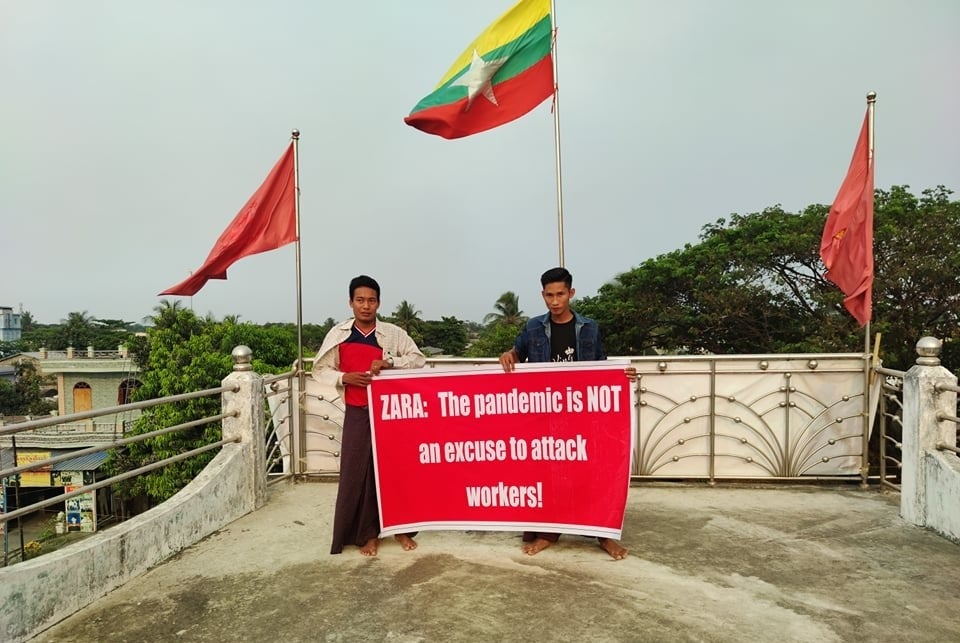
As Thingyan, Myanmar's annual new year water festival, began in April, hundreds of workers returned to their hometowns, uncertain of when they would return to work. Most workers had accepted a small severance from the factory; some had not. Myint said she and the other union members were growing increasingly certain that they were being punished. Another factory, Rui Ning, located in the same industrial complex as Myan Mode, had laid off 30% of its workers, most of whom were union members too. By this time, the coronavirus crisis was also growing: Yangon imposed a lockdown during the holiday season from April 10 to April 19, as well as a night curfew when it was discovered that 80% of the country’s positive COVID-19 cases were in the capital.
In the past, labor unions and NGOs have been wary of publicly calling out brands because they were afraid of precisely what happened at Myan Mode and Rui Ning — troublemakers would be fired, or the brand would shut that particular factory down and sign a contract with another. “Owners briefly shut down the factory only to quickly reopen with new, nonunion workers,” Tillet-Saks, the labor rights activist, said. “Often, they will change technical details such as the factory’s name or registrant to circumvent labor laws, while maintaining the same core operation.”
A union leader in Rui Ning explains what happened at the factory.
But the prospect of being unemployed during a pandemic might change that. For the past month, around 30 members of the Myan Mode union who were sacked appeared daily outside the factory’s gates in protest, where they ate, slept, sang union songs. The union has also approached the South Korean consulate and Yangon’s Arbitration Council. “If that does not work, we might even sue,” one leader told BuzzFeed News on the condition of anonymity. BuzzFeed News also learned that union members from the Myan Mode and Rui Ning unions have reached out to union workers in Spain, who have assured them that they will add pressure to negotiations with Inditex and Mango.
“If the Spanish unions do help, this is a great step in the international labor rights movement. It will mean a lot to the union in Myanmar,” said Tillett-Saks, who was aware of emails exchanged between the unions in Myanmar and Spain. “With the employers and brands being so multinational, workers need to be united internationally as well if they are going to have any power to improve the garment industry. All they want is that workers who were fired should be reinstated and that they do not use the pandemic as an excuse to attack the union.”
Inditex’s own code of conduct states that the company supports unions and wants factories to treat workers in the supply chain with care for their health and safety. Days after BuzzFeed News reached out to the company’s ethics committee for a response on the sacking of workers at Myan Mode, a representative from Inditex said the dispute at Myan Mode with 29 workers had been resolved through dialogue, and that the factory had agreed to reinstate the protesting workers. The more than 500 workers who had accepted severance pay could possibly be able to return to the factory once it resumed work at full capacity — although it was unclear when that might happen.
“We have communicated with suppliers to follow local government recommendations and instructions and/or to implement measures to ensure they are following the health protection guidelines for workplaces detailed by the WHO regarding Covid 19,” the Inditex representative wrote.
“We are working closely with our suppliers at this difficult time and we expect continued compliance with our Code of Conduct, which clearly requires fair treatment of workers and no discrimination against workers’ representatives.”
But union workers said the olive branch from Zara, which arrived on May 6, more than a month after 571 workers were fired, was a belated attempt at damage control. “This union-busting case using COVID-19 as cover has not yet been resolved,” a union worker told BuzzFeed News, speaking on the condition of anonymity. The union worker said that the offer to reinstate 29 people fell short of the union’s demands.
For instance, more than 500 workers who were laid off still had no jobs, and the fact that they had accepted a paltry severance was being used against them. Myan Mode had failed to honor an agreement that it would not target the union and lay off workers during the pandemic, the union member said. Myan Mode is still refusing to recognize the union officially, while it has hired hundreds of daily migrant workers who are not members of any union.
Mango did not respond to a BuzzFeed News request for comment.
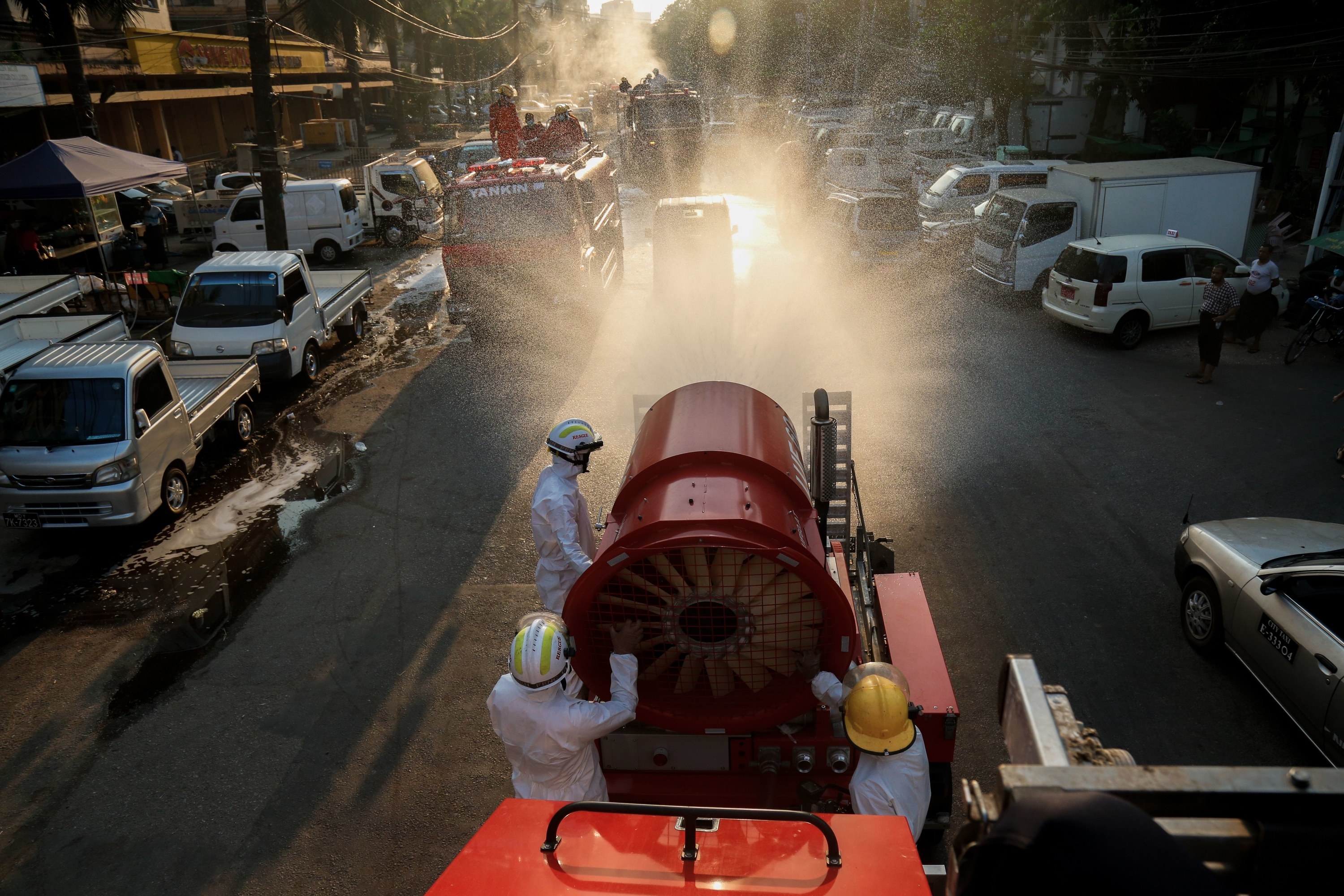
Across Asia, countries have had two kinds of responses to the pandemic: complete shutdowns like India and Sri Lanka, or partial lockdowns with restrictions, like Cambodia, Indonesia, and Myanmar, where governments have banned gatherings but kept factories running. While these decisions have largely depended on the health of each country’s domestic economy, countries suddenly closing down their borders have caused panic — particularly among the poorest and most invisible populations of migrant workers, who cross domestic and international borders searching for work. This exodus of worried workers, desperate to return home as the worst economic and health crisis grows around them, is occurring in tandem with spikes in COVID-19 cases.
Everything is terrible — but the pandemic is particularly worrying for the people making our clothes, because readymade garment workers work on short-term contracts or are sometimes paid per piece of apparel, existing precariously close to poverty. Already, several brands have canceled orders of clothes that have already been made in factories, and many have reneged on payments promised to workers in Asia. The relentless consumer hunger for branded clothes and fast fashion means that when the worst of the crisis is over, and our appetite for shopping returns, all that a big brand has to do is find the next bunch of cheap laborers.
For too long, we’ve pretended that fast fashion and eco-consciousness can coexist, that the worst excesses of sweatshop exploitation are a thing of the past. Brands like Zara and Mango advertise sustainability all over their stores; other brands assure customers that they recycle all their packaging. But in the middle of a pandemic, it is no longer enough to wear faux concern. ●
UPDATE
This article has been updated to include a statement from Inditex issued after the story was published.
UPDATE
This article has been updated with information that Inditex set up a hardship fund for workers in Turkey in 2017.

